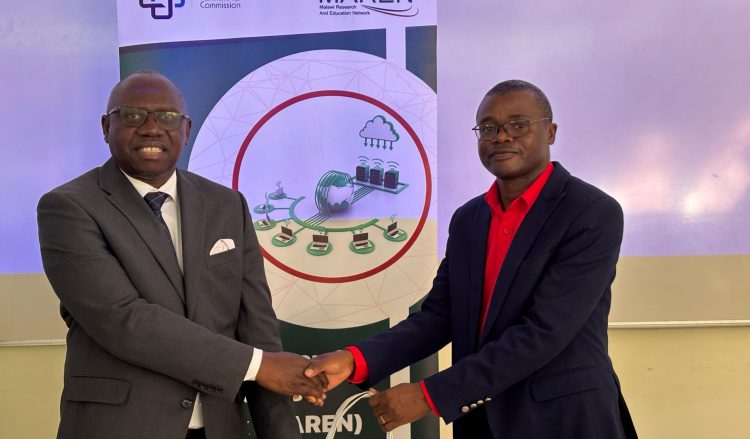
MAREN signed a service agreement on High Performance Computing (HPC) with the Lilongwe University of Agriculture and Natural Resources (LUANAR) on Wednesday, 23rd April, under the Africa Center of Excellence in Agricultural Policy Analysis (APA) initiative in Lilongwe. LUANAR becomes the first university in Malawi to fully commit to HPC, as it plans to utilize this advanced technology for big data analysis.
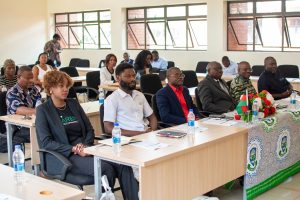
During the meeting, Data Science Master’s students George Sichinga and Biswick Jeremiah presented their paper titled “Deep Learning in Agriculture: Tomato Leaf Disease Detection Using Convolutional Neural Network (CNN).” They developed a data analysis model capable of detecting whether a tomato plant is diseased. Prior to using HPC, their training process lasted between 4 to 6 hours per session, and data collection was slow, often taking up to 3 days to complete full training. Although they attempted to use Google Colab, its 5-hour time limit posed a challenge. However, with HPC, the training time has been reduced to less than 2 hours. This significant improvement—from 3 days to just 2 hours—demonstrates HPC’s potential in enabling more training and the development of complex models. Biswick Jeremiah emphasized, “HPC will change the research quality and will transform agricultural disease detection.” Dr. Ruth Magreta, Deputy Director of the Africa Center of Excellence in Agricultural Policy Analysis (APA), remarked, “With HPC, LUANAR is advancing digitally in this digital space.”
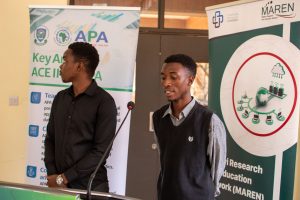
Present at the meeting was LUANAR’s Vice Chancellor, Professor Emmanuel Kaunda, who stressed the importance of adopting HPC. In his words, “HPC is a great improvement to the digital world. It is an opportunity to change Malawi, so let’s make use of it. With HPC, by the time the Data Science students graduate, they will have developed many solutions for Malawi’s agriculture sector. This will undoubtedly transform the agricultural landscape. HPC is going to bring a huge impact to the country.”
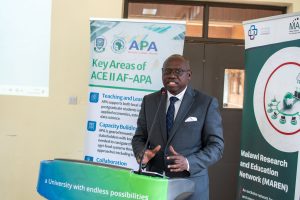
MAREN’s CEO, Solomon Dindi, shared a personal anecdote about applying for a prestigious HPC scholarship back in 2005, which he was unfortunately denied because it was deemed irrelevant to Malawi at the time. He noted, “There is a lot of opportunity with HPC. MAREN has had HPC for a while, but LUANAR is the first university to fully commit. Even though LUANAR and MAREN may face some challenges in using HPC and other services, they should always remember that MAREN has many collaborators.” He added, “As MAREN, we have a lot of collaborators—our fellow NRENs who support us, as well as other organizations that offer assistance.”
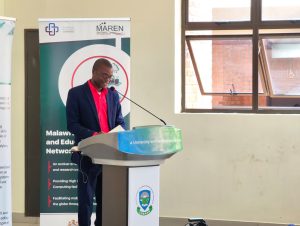
The meeting concluded with the signing of the service agreement, officially making LUANAR the first university to partner with MAREN as a service provider for HPC.
Subscribe To Our Newsletter
Get updates and learn from Us
More To Explore
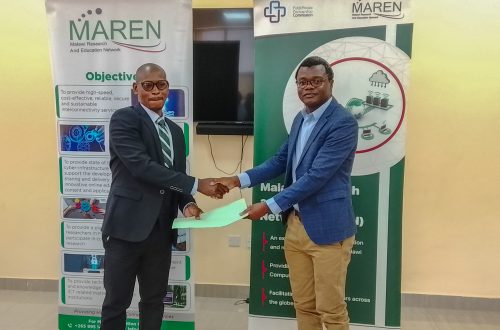
MAREN Supports ARMA’s First National Records and Archives Conference
The Malawi Research and Education Network (MAREN) has provided financial support amounting to K4,150,000 to
MAREN Modernises Its Cloud System to Enhance Research and Education
The Malawi Research and Education Network (MAREN) has taken a major step in improving digital
